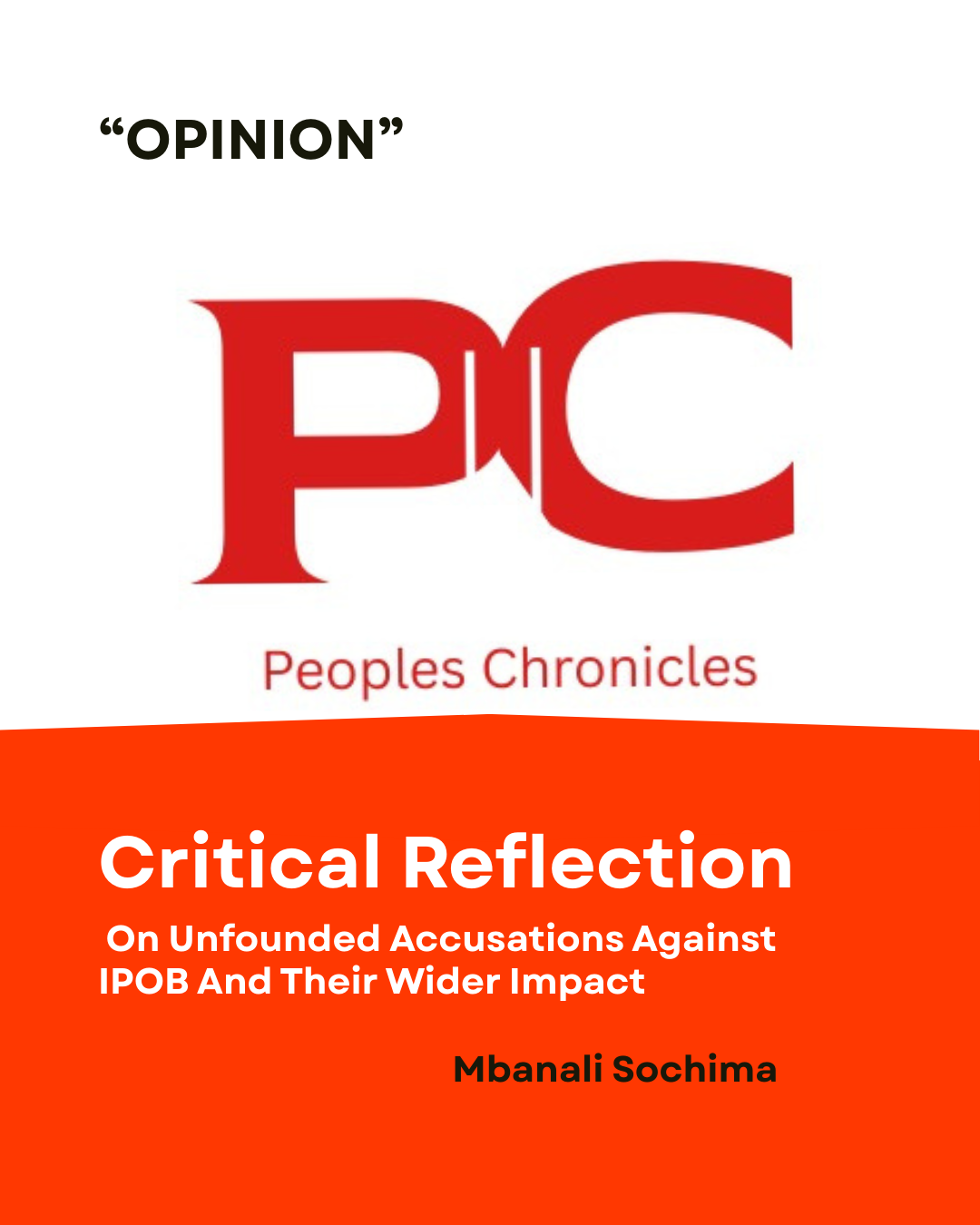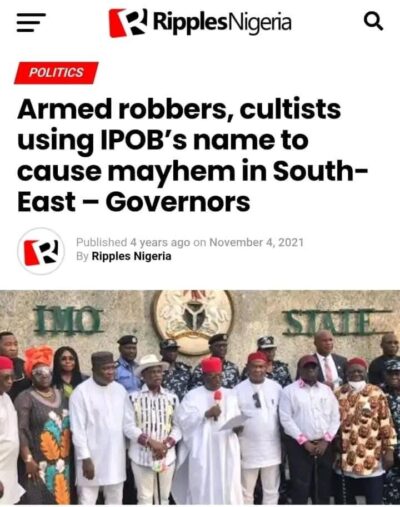
Opinion: Critical Reflection on Unfounded Accusations Against IPOB and Their Wider Impact
Johannesburg, South Africa (September 20, 2025)
No one who criticizes the Indigenous People of Biafra (IPOB) without credible evidence can genuinely claim to defend the interests of the Igbo people. Unsubstantiated allegations do more than damage reputations; they place lives at risk.
Historically, accusations of violence against IPOB have provided the Nigerian security forces with a pretext for heavy-handed operations in Igboland. Communities have repeatedly reported that security raids allegedly aimed at combating IPOB have involved harassment, arbitrary arrests, and killings of ordinary citizens. This pattern underscores how reckless claims can become a cover for broader attacks on Igbo communities.
Recently, a growing number of so-called Igbo commentators have publicly criticized IPOB without substantiating their claims. One example is a statement made in the United States by an individual known as “Bitcoin Chief,” who accused IPOB of terrorism despite security analysts attributing the region’s insecurity to political power struggles, including statements from the Institute for Economics & Peace (IEP), a global think tank that recently apologized to IPOB for dancing to the tune of the Nigerian government when they erroneously tried to link IPOB with criminality.

Imo State’s own governor, Hope Uzodinma who doubles as the chief security officer of one of the worst-affected states, like the other Governors in Igboland has repeatedly acknowledged that local politicians fuel the unrest they often blamed on IPOB for their political expediency. Yet, we still see individuals who for one reason or the other dim it fit to encourage the massacre of Igbo people by propagating lies.
When challenged by Igbos to provide evidence, Bitcoin Chief portrayed himself as a victim—a response that shifts focus from the gravity of the initial accusation. Actor Yul Edochie later echoed similar sentiments, and some faceless groups such as Unify Igbos Now offered ambiguous statements that, intentionally, reinforced the narrative that IPOB had turned violent. Such positions, even when framed as debate, risk legitimizing misinformation and deepening public mistrust.
The danger is not abstract. Misrepresentation of IPOB’s aims and methods weakens public understanding of Biafra self-determination efforts and encourages security agencies to continue the massacre of Igbo people. This is why responsible discourse is essential: allegations of criminality must be backed by verifiable facts, and commentary must be grounded in evidence, not rumor or political expediency.
Defending Igbo interests requires more than rhetoric; it demands collective responsibility and constructive action. The millions of ordinary Biafrans who quietly uphold their heritage can strengthen their communities through everyday commitments:
-
Economic Self-Reliance: Invest and build businesses in Igboland, reinforcing local economies.
-
Community Stewardship: Promote clean, orderly environments by practicing simple habits such as proper waste disposal and respect for public spaces.
-
Food Security: Support local agriculture to ensure sustainable food supplies and reduce external dependence.
These steps embody the principle of self-love or the love for Igboland that these accusers claim to be their motivation. Self-love as a precursor to self-determination is far more effective than trading accusations or seeking personal gain from political divisions.